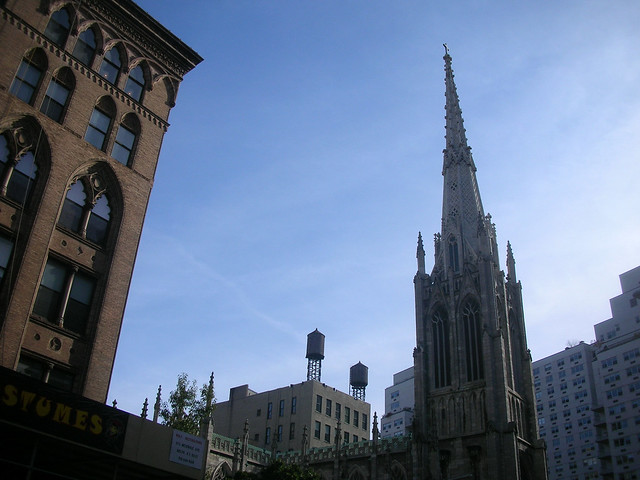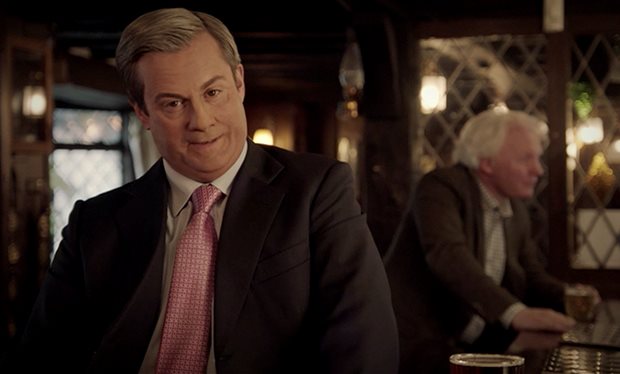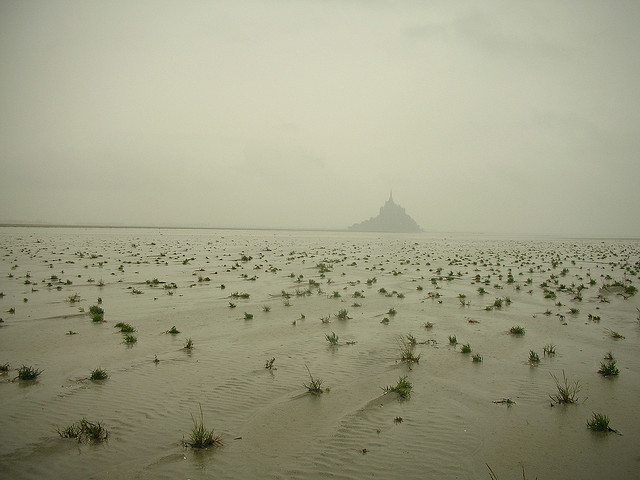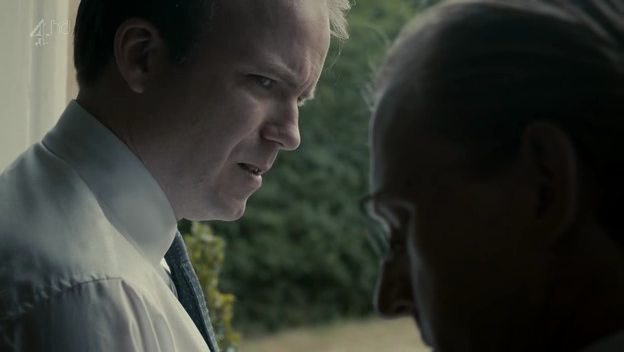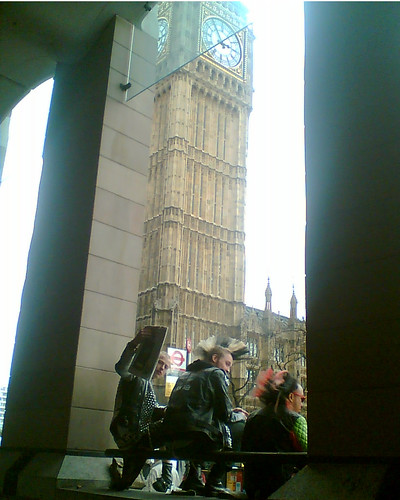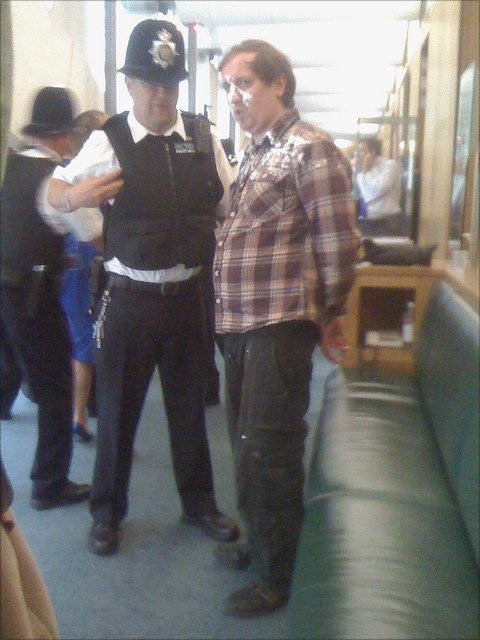Posts Tagged ‘politics’
Alternative Election Night | Channel 4
6 December, 2019Stand By Me | BBC News
21 May, 2018A piece for BBC News about the use of Stand By Me at the royal wedding:
That’s why Harry and Meghan’s choice of song meant more than if they’d gone with, say, Ed Sheeran’s Shape Of You. And the performance by the Kingdom Choir takes Stand By Me back further still, re-infusing it with the defiance as well as the devotion of gospel.
Masterclass: Craft of Comedy Entertainment | Bafta
7 October, 2017Taking an evening off from editing to hear from this comedy panel at @BAFTA. Should be a really interesting evening! pic.twitter.com/24IEUXv5RE
— Mei Leng Yew (@widowedanthem) October 17, 2017
I’m part of the panel for a Bafta event:
A panel of comedy entertainment producers and writers discuss the recent renaissance in entertainment television, covering programme development, writing, casting, and the role of satire.
- 6:45pm, Tuesday, 17 October 2017
- Princess Anne Theatre, Bafta, 195 Piccadilly, St. James’s, London W1J 9EU
- Tickets
- Updated with image by @widowedanthem
Alternative Election Night | Channel 4
5 June, 2017I have been enjoying working on Channel 4’s Alternative Election Night:
Jeremy Paxman, David Mitchell and Richard Osman present an all-night feast of comedy and comment in Channel 4’s very different take on election night
Election Lexicon | BBC News
12 May, 2017By me for BBC News: Election Lexicon, the words which “caught the ear” in a week of campaigning.
27 May: [campaigning suspended]
Nigel Farage Gets His Life Back | BBC2
25 August, 2016Kevin Bishop is Nigel Farage, in a programme imagining his life after resigning. Blurb:
“On the 23rd June, Britain voted to leave the European Union,” added the BBC. “Then, on the 4th July, Nigel Farage, the man who had made it all possible, resigned saying he wanted his life back. But what sort of life has he gone back to, and how does a man forever in the spotlight fill his days now he has nothing to do?”
Charlie Brooker’s Election Wipe | BBC2
30 April, 2015I am a proud member of Team Election Wipe, the fruits of whose labours will be broadcast shortly before the polls open.
Alternative Election Night | Channel 4
30 April, 2015Ary Barroso’s Aquarela do Brasil for BBC News
25 June, 2014A piece for the BBC News Magazine about Aquarela do Brasil:
One rainy night in 1939, he wrote the opening lines of Aquarela do Brasil (Watercolour of Brazil): “Brasil, meu Brasil brasileiro.” This translates as “Brazil, my Brazilian Brazil”. Never have four words been more Brazilian, before or since.
The censors had issues with some colloquialisms and a folksy reference to tambourines, but Barroso persuaded them that his “samba exaltacao” was modern and patriotic enough to meet their exacting requirements.
I thoroughly enjoyed Misha Glenny’s radio documentary The Making of Brazil, Bryan McCann’s book Hello, Hello Brazil: Popular Music in the Making of Modern Brazil and Scott L. Baugh’s reference work Latino American Cinema: An Encyclopedia of Movies, Stars, Concepts, and Trends. I am indebted; they are recommended.
My favourite versions:
And here’s that Disney, and Ze Carioca alive and well in 2014:
- See also: the BBC’s World Cup song, Stevie Wonder’s Another Star
- Photograph of a football match in Bekonscot
Louis Armstrong’s What A Wonderful World for the BBC
10 December, 2011A piece about Louis Armstrong’s What A Wonderful World for the BBC.
It’s also irrepressibly public-spirited, people shaking hands on the street are, apparently, ‘saying I love you’ – illustrated in the Attenborough video, oddly, by two hippopotamuses fighting each other in the Okavango river.
And this is not the first time What A Wonderful World’s generosity of spirit has been juxtaposed with less-than-cheerful imagery.
No room, sadly, for Armstrong’s 1957 refusal to join a goodwill visit to the Soviet Union, saying: “The way they are treating my people in the South, the government can go to hell.â€
- Smashed Hits on perhaps-unlikely politics: Down Under; Two Little Boys
Bright blessed day photograph taken in Richmond Park; dark sacred night in Almondsbury – both in voguish Pano formatAccidentally permanently deleted and replaced with Mont St Michel
Black Mirror: The National Anthem
4 December, 2011I made a thinkribution to The National Anthem, the first story in the Charlie-Brooker-yielded Channel 4 drama collection Black Mirror, but (a) barely perceptibly and so (b) you should watch it — with a caveat about adult themes.
- date/tx/channel: Sun 04 Dec/2100/C4
Party Conference Music: Primal Scream or Dandy Warhols?
5 October, 2011A rapid-response piece for the Guardian about Primal Scream’s outrage over being played at Conservative party conference:
“But whoever initially misidentified the music must have a tin ear. Bohemian Like You sounds like a Rolling Stones megamix with an emphasis on One Hit (To The Body) off Dirty Work, while Rocks sounds like a Stones megamix with an emphasis on Little T&A off Tattoo You.”
I am also compiling a Big List of all music played at all party conferences, politicians’ Desert Island Discs, etc. This will help.
- My look at David Cameron’s choice of Benny Hill’s Ernie in his Desert Island Discs
- Image of some Rocks taken in Staithes, Yorkshire
- The tin ear has since been assigned to Kerry McCarthy [PA]
The Clash’s London Calling for the BBC and NPR
28 July, 2011As the countdown to the 2012 Olympics kicks off with an unlikely theme song, I look London Calling and its zombies and heroin for the BBC.
“The Clash were supporters of pirate radio and considered launching their own station; this love song to the wireless signal recounts what, in punk terms, is up-to-the-minute and truthful news. But it isn’t saying ‘come and enjoy the canoe slalom’.”
Major hoorays to Marcus Gray’s Route 19 Revisited for the key fact that London Calling was originally inspired by Joe Strummer’s dislike of sports fans visiting London, as he explained to Kosmo Vinyl (Clash On Broadway box set booklet, 1991). Awkward [Update [1 Aug]: Praise be! Route 19 is imminently in paperback. There is nothing more interesting to say about 1979; I know – I tried! Buy it – it is The One.]
Sadly there was no space to mention Clash fan of Indian origin Harraj Mann, questioned in 2006 under the Terrorism Act after a taxi driver taking him to Heathrow airport became alarmed that he was listening to London Calling and called the police. The incident was seen as a massive overreaction, suggesting either that the song has lost its incendiary power, or that the authorities were being over-cautious – or both.
Also neglected was the way Strummer starts “doing” Tommy Steele’s Singing The Blues at the end (“I’ve never felt so much a-like…”), never better described than by Tom Ewing: “No consonant is safe with Steele around, words pool into one another in a shrugged gush of pre-meditated moodiness.”
Update [30 Jul]: Here is wireless nabob Scott Simon of NPR’s Weekend Edition Saturday yakking with me (see also NPR’s blog The Record):
- Image of comedy London punks in Westminster, 2006. It turned out, as they snarled at me, that I’d broken some implied contract where I’d pay to photograph them in a public place.
- Here’s an old BBC “London Calling” poster: “Throughout Europe, men and women are risking imprisonment, and even death, to hear the news from London, because they know it tells them the truth.”
- Some overlap with an earlier piece I wrote about (White Man) In Hammersmith Palais.
- People who like to know about mixing an instrument DI with a Neumann U87 on the cabinet will appreciate Mix’s Classic Tracks feature on the song; this BBC audio slideshow on the London Calling album is less abstruse.
Anders Breivik’s Plagiarised ‘Manifesto’
25 July, 2011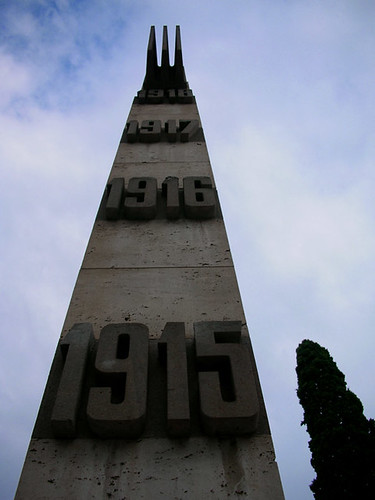 If Anders Breivik has just printed off the internet, maybe we shouldn’t make too much of his manifesto just yet.
If Anders Breivik has just printed off the internet, maybe we shouldn’t make too much of his manifesto just yet.
Among the blogs I read every day is My Right-Wing Dad, where appalled young American Democrats share emails they’ve received from relatives who have done the “FORWARD TO EVERYONE YOU KNOW!!!” thing. Among the icky racist cartoons and the odd genuinely funny bulletin-board-style gag are volumes of interminable implausible “research” about Bad People.
It’s the type of content that’s sometimes neither visible on the normal old web, nor hidden in the darknet: the stuff that pings in and out of inboxes, across forums and onto Yahoo! Groups. And if you’ve read that stuff too, Anders Behring Breivik’s “manifesto” must seem drearily familiar.
Why, you might otherwise wonder, would a Norwegian who claims an affinity with England write with the rhythms and cadences of amateur American net culture? And why is he so interested in the 1980s curriculum at Stanford University? The answer may be that Breivik didn’t so much “write” much of what he calls his “book” as copy, paste and twiddle. If you’re fascinated by plagiarism – I know I am – the twiddling will be familiar too – find/replacing terms throughout, the odd rejigging of sentences at the top of paragraphs to leave an apparently new document, still leaving inconsistency in tone, spelling and style.
Hulking chunks of the document come with attributions, and the latte wing of the UK twitterverse is currently sharing mentions of Jeremy Clarkson, Melanie Phillips and other apparent provocateurs; simultaneously scary and pathetic is the amount that should be attributed, but isn’t.
The lengthy “how the world is” section, for example, is a barely-finessed paste of a 2005 report called Political Correctness: A Short History of an Ideology by American think-tank the Free Congress Foundation; Life Site News hosts what appears to be the original. Breivik might have found it all together, or in the various forms it’s been scattered across the net.
Here’s an extract from Chapter 1, What is “Political Correctness”? by William S. Lind, apparently a military pundit and sometime senatorial aide:
And here’s Breivik, changing the location to Europe:
From Chapter 2, The Historical Roots of “Political Correctness†by Raymond V. Raehn, apparently a strategist:
And Breivik:
Finally for now, here’s the end of Chapter 3, Political Correctness in Higher Education by T. Kenneth Cribb, Jr, apparently a Reagan aide:
And, again, with a transatlantic transplant:
If this really took Brievik nine years, someone should have told him about CRTL+C; CRTL+V. You don’t need to type it all back in again. “Nine years” is a great line to get attention, but not one to be repeated without a bit of scepticism.
There’s plenty more, of course: Unabomber borrowings; reading lists cribbed from university courses, inevitable Wikipedia scrapes, and a critique of mass media seemingly lifted from an old leftish site after the removal of an approving reference to a John Pilger programme about Palestine. If you’ve ever said to yourself, “what a world we live in!”, you’ll probably shudder as you find something you agree with: even the bonkers end of the net is right at least twice a day.
It looks at the moment as if Breivik is positioning his murders as a kind of “marketing” for these pages of bilge, hoping they’ll be translated and read across the globe. So here’s the thing.
We should bear in mind that Brievik hasn’t, as some reports have it, proved himself “articulate”, or “well-read”, or some kind of intellectual mastermind. There’s little in his manifesto that couldn’t be produced after an all-nighter on the net hopped up on meds. There are, let’s say, plenty of self-published first-time authors whose work deserves more serious attention.
The manifesto might contain technical clues of use to the police; it  might contain political or philosophical clues as to why he did what he did. I’d be fascinated if it did, but I don’t know, and neither do you.
Perhaps Boris Johnson is right, and this is a story about “a narcissist and egomaniac who could not cope with being snubbed” by a girl “in favour of a man of Pakistani origin”; perhaps anti-conservative commentators are right that the amount of hate-text and fear-screeds already published are necessary or sufficient for acts of terrorism. It’s – obv – far too early to say.
But it’s not too early to say that Breivik is trying to build up his pontification in court today in the hope that international media will handle it like an evil genius’s plot-changing scene in a thriller rather than a mish-mash of other people’s wibble. That would seem to be missing the point and playing a loser’s game.
- Video from Newswipe about media treatment of mass killers – as relevant and must-watch now as it was then.
- Image of fascist sculpture in Cagliari, Sardinia.
- Related: a feature I wrote about online racist culture for the BBC, The poem that ends careers.
Murdoch ‘Pie’ Attack: I Was There
20 July, 2011Above is an image of “Jonnie Marbles” getting handcuffed outside the Wilson Room in Parliament. Below are images of the rest of us in the room being ejected. Here’s why everyone there found the stunt infuriating:
- The queues had started over seven hours before the committee began. It was like the Royal Wedding, but – genuinely – with normal people. Oldies, supermarket employees, families – normal. And while it was a festive mood, it was also tense: the official line as to how many people would get into the room kept changing, and some people were certainly facing a wasted day. Questions popped about. Was space being cleared for the Dowler family? Had the tiny Wilson Room been chosen so as not to look like a show trial? Was Jemima Khan trying to hop in? At one point, we were told that the Doorkeepers were considering letting us sit on each other’s laps if we so fancied. Westminster reporters were heckling sketchwriters about their slim chance of making it in. So when we later found out that the front of the queue had been a gang with a bag full of shaving foam, “comedy” wasn’t the first word that sprang to mind. Nor was “activism”. “Shabby oaf” and “stupid tit” were some of the descriptions I did hear.
- The dynamic in the room was entrancing – until it was cut off. Murdoch Jnr’s longer spiels were worthy of your favourite guest on Just A Minute – circumscribed vocabulary expressed with eerie diction, fending off attempts at interruption. “I’m happy to answer that,” indeed. As for Murdoch Snr, each time he rhythmically rapped his fin on the desk, the Wilson Room started by going instantly silent and then seemed to get more so. It wasn’t possible to tell whether this was deference on the part of the MPs, or anticipation of a juicy detail – but it was spell-binding. Knowing that the Murdochs, as non-subjects, were not compelled to attend meant that the ultimate authority never seemed to settle, though Headmaster Whittingdale had the lion’s share. Some of the questions felt a little random, but might have been leading somewhere that’ll become apparent in the months to come; we simply couldn’t tell. The experience was like those Richard Norton-Taylor inquest-recreation-play things, except real. Except – again – sometimes it didn’t seem real. There was Rupert Murdoch! In a room! Boom! Gone! For one afternoon, a functional room filled largely with shirted men was the greatest show on Earth. I swear I never once heard anyone whisper “You know what they should send in? Some clowns.”
- Which brings us to another shared source of exasperation. Moguls don’t tend to hang out in public space. This was like seeing Thor in a Job Centre. You don’t have to be fanciful or grandiose to feel proud that This Is How We (Eventually) Do Things – after all the tales of deceit and connivance, here was an open, public event, open to the public, where the public would show it was decent and fair. The public wasn’t supposed to be baffling, threatening or in any sense dickish. People were surprised that they were allowed to nip to the loo, drink fizzy water and chew gum. Hey – The Authorities don’t think we need to be treated like infants! Hmm.
Then, at just after ten to five, it was all over. An amazing, inspiring event ceased to exist as a piece of public property. I’d even missed the affray itself, because I was incredibly preoccupied with another bag-holder behind me, who had also stood up and seemed to be working his way round from the other side. Next we shuffled around as per the coppers’ yelled instructions, before eventually and sullenly trudging down the corridor to join Jemima Khan in the Boothroyd Room, cursing Jonnie Marbles. The committee was on the screens there, but what’s the point of watching something on TV if you have to remain decently dressed and you can’t even nip off to get a sandwich during another of Murdoch Jnr’s sixty-second dashes?
Finally, the speculation started again, including the inventive theory that News Corp had put the jackass up to it. “Because,” a punter noted, “that was the best thing to happen to Rupert Murdoch all day.”
10 O’Clock Live
25 February, 2011I’ve been working as a writer and producer on Channel 4’s 10 O’Clock Live. When it isn’t live, you can watch clips, like this:

